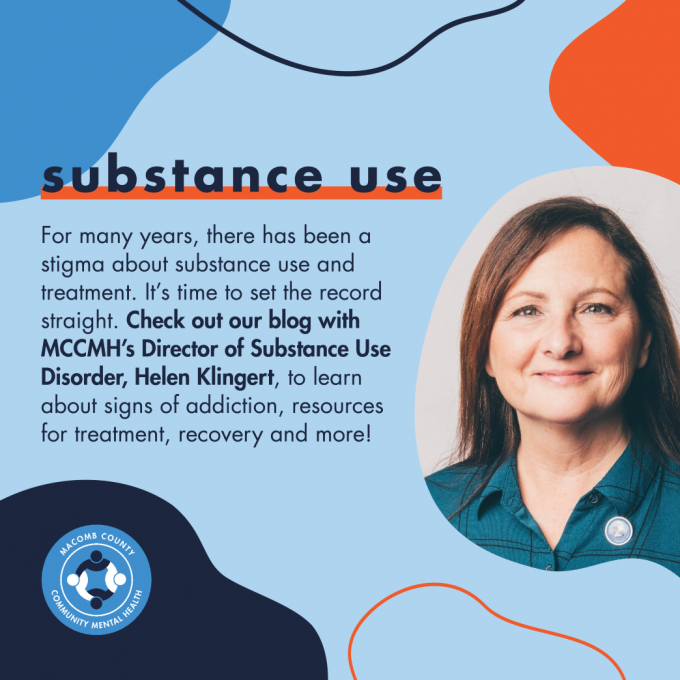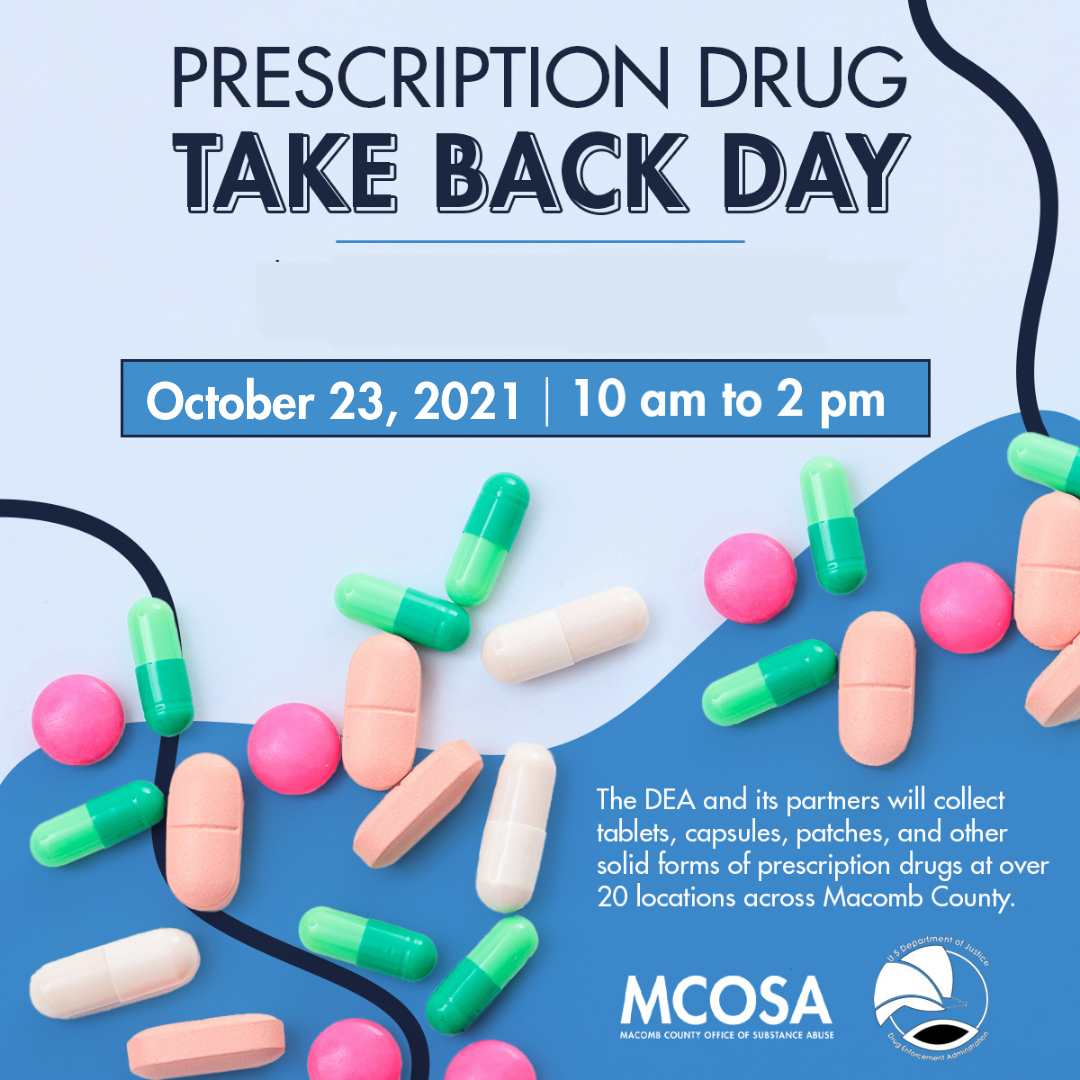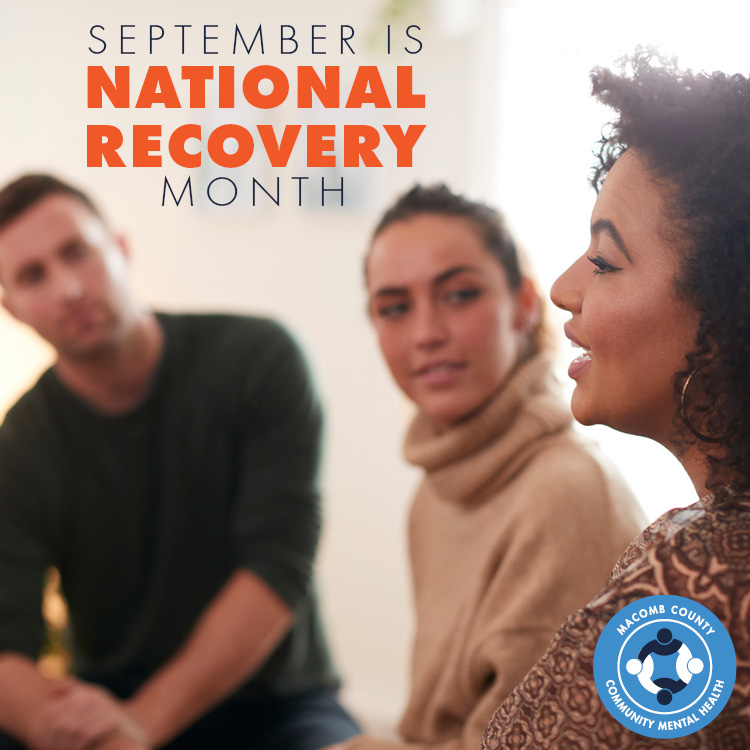
How We’re Setting the Record Straight About Substance Use:
For many years there was a fundamental misunderstanding of causes for substance use disorders. Many people viewed this disorder as character flaws or moral failures rather than an illness or disease that needed treatment. Some individuals don’t seek treatment because they have not yet identified their use as problematic or may not be at the stage of change where they are ready to make changes. Others may worry about the cost of treatment, how it may interfere with their work or family life or not know how to access services. In this blog, MCCMH’s Director of Substance Use Disorder, Helen Klingert, helps to dispel these stigmas.
Substance use can affect anyone and there are many different ways that it can start. “Substance Use Disorders can start from taking prescribed medications, trying to mask symptoms of emotional issues, or as a result of experimentation with alcohol or drugs. It is different for all people,” Helen Klingert said. “Some individuals have a genetic predisposition to substance use disorders, placing them at higher risk of problems related to use. Other individuals may be at risk due to social or family influences that encourage alcohol or drug use.”
Many times a person may think they have an issue with their use is when it negatively affects areas of their life, such as: legal consequences, loss of relationships, loss of employment or trouble at work, sleep problems, changes in appetite. Often, it takes others that are close to the person to help them realize the negative affects their use is having. Klingert says, some individuals may begin bargaining with themselves to change their drinking or using habits to prove to themselves that they have things under control, such as statements like “I’ll only use on weekends,” or, “I’ll only drink beer but not liquor”. However, when they find that they cannot limit their use, they begin to realize they have a problem.
MCCMH’s Access Center can help to determine the best treatment option. A master’s level clinician will conduct a telephone screening using the national standards of care using the American Society of Addiction Medicine criteria. This criteria looks at different areas of a person’s life to determine what affect substance use is having on that area. Depending on the severity of these consequences of use, different levels of treatment are recommended. Choices of providers will be offered and the Access Center will link the person to the treatment program of their choice.
Treatment providers encourage individuals to include family and support people in the treatment process. “This provides an opportunity for loved ones to understand substance use as a disease, learn ways to support an individual in their recovery journey and help heal the family unit,” Klingert said.
Substance use treatment happens on a continuum, with clients moving from higher to lower levels of care as their symptoms improve or vice versa if symptoms increase.
“While a traditional treatment program may end, for most people this is not the end of their recovery journey. They may enter a maintenance phase of their substance use disorder where they utilize more community supports such as twelve step meetings, meet with a sponsor or peer recovery coach, or participate in community Recovery Center activities,” said Klingert. Continuing to remain linked to the recovery community can provide ongoing supports that strengthen recovery.
Gaining a better understanding of substance use as a disease will help more people come forward and ask for help. “It would be good for people to know that substance use disorder is a chronic brain disease that requires ongoing treatment and support,” Klingert said. “It is a treatable disease. People can and do recover, but may have slips or relapses along the way. The community also needs to know that help is out there and recovery is possible.”
MCCMH’s Office of Substance Abuse contracts with treatment providers to provide the full continuum of substance use care including: Prevention, Early Intervention, Withdrawal Management, Residential Treatment, Medication Assisted Treatment, Intensive Outpatient Treatment, Outpatient Treatment, Peer Recovery Services, Recovery Housing, Case Management and Women’s Specialty Services. We also provide services within many Macomb County schools and the Macomb County Jail.
For more information regarding substance use or these services, contact our Access Center at 586-948-0222




